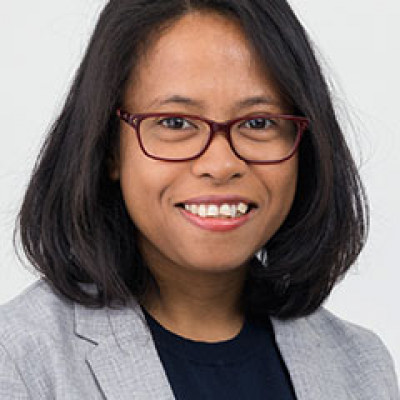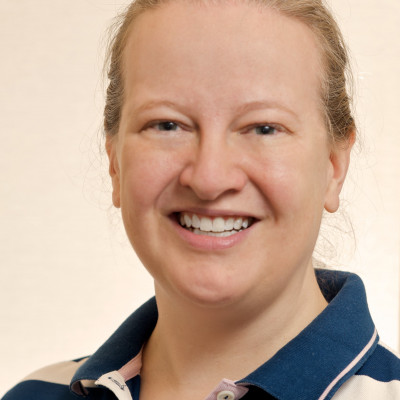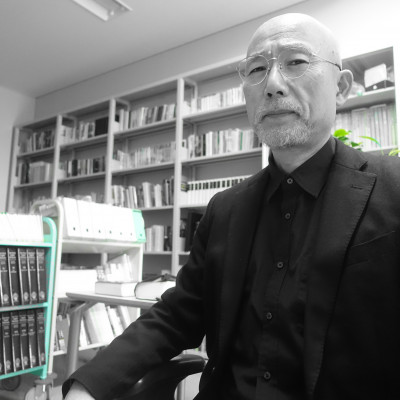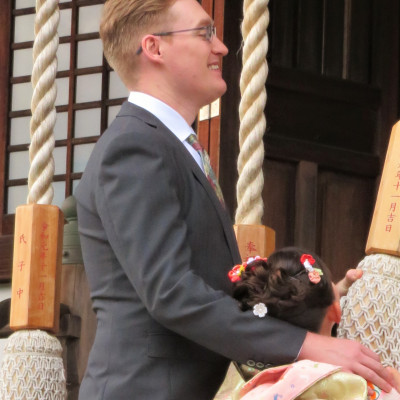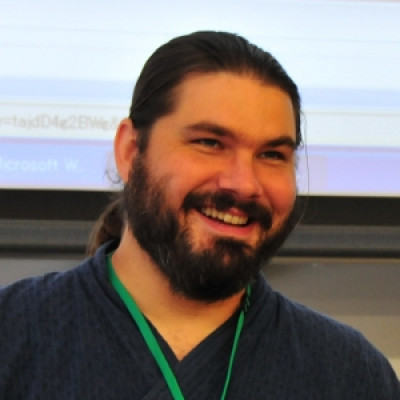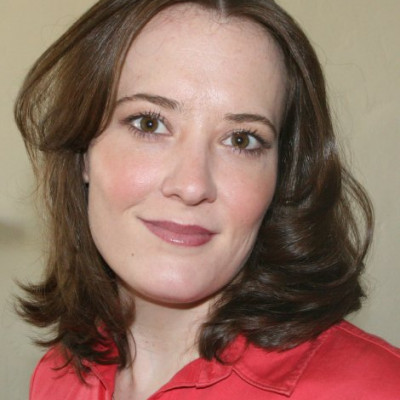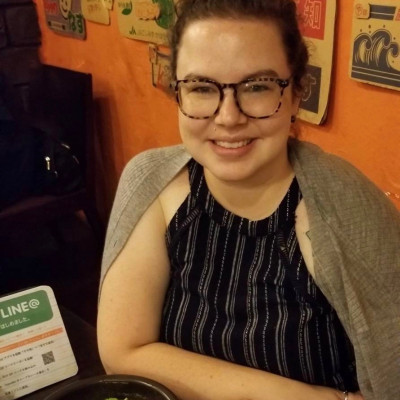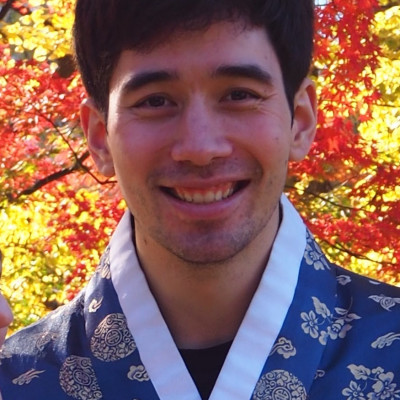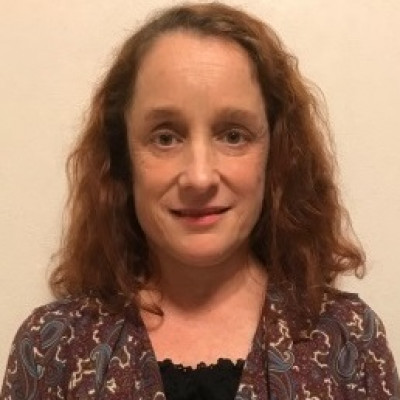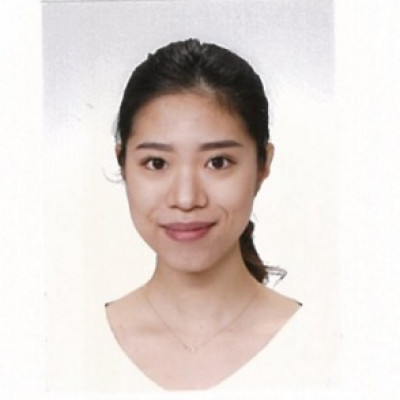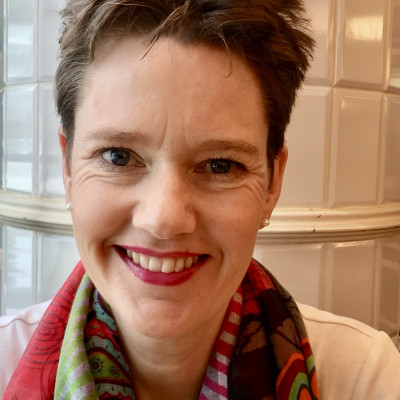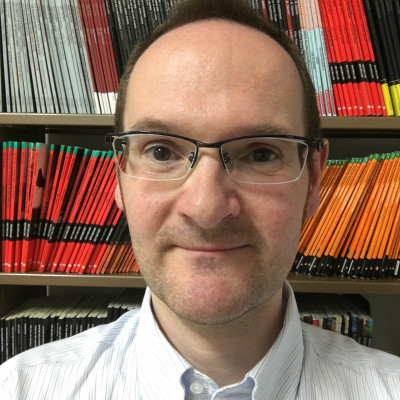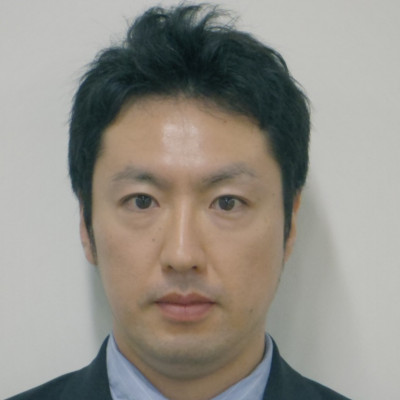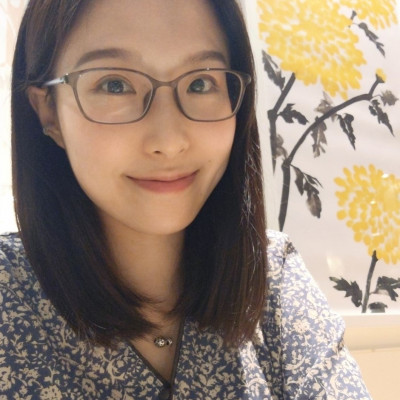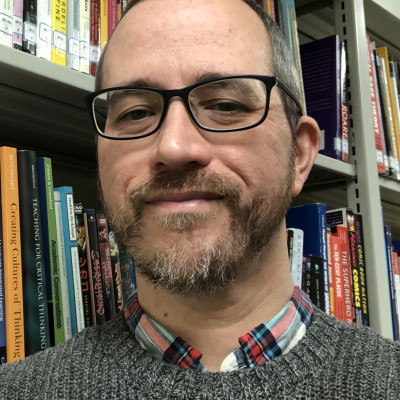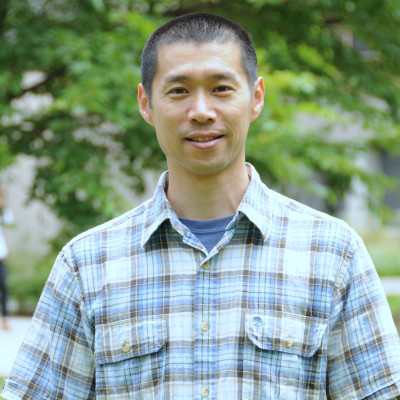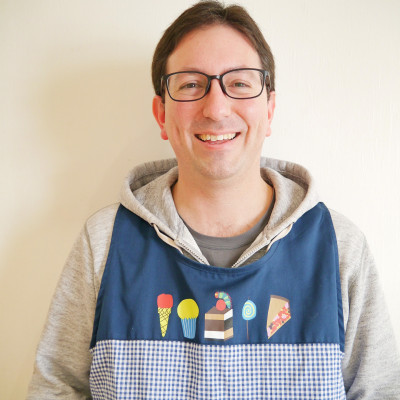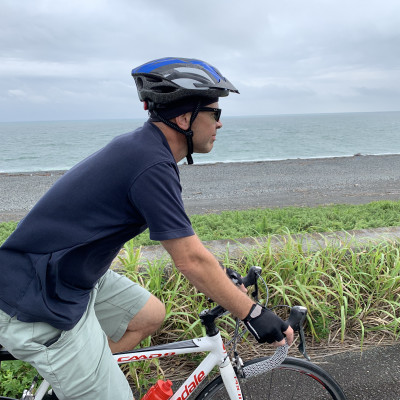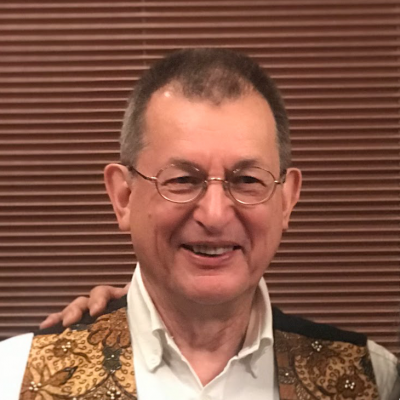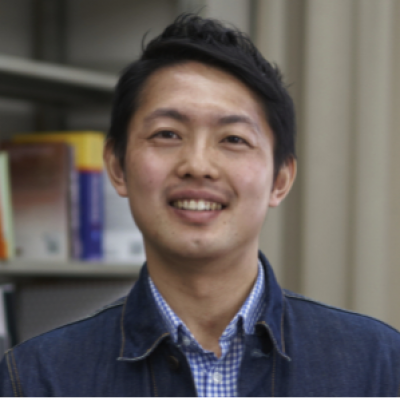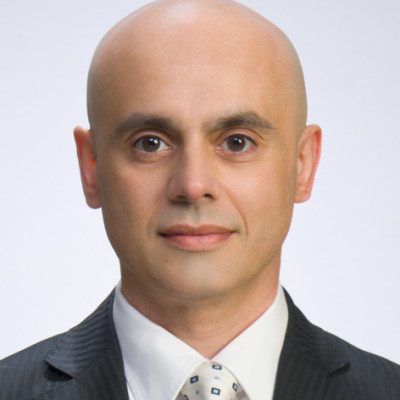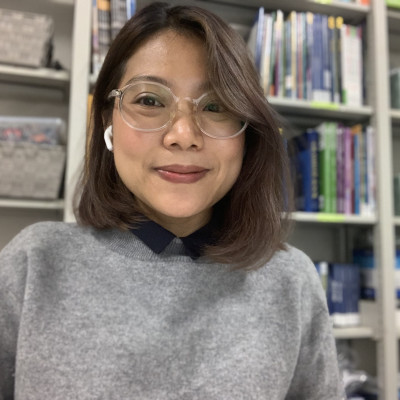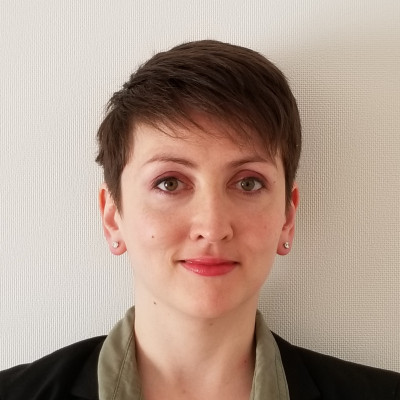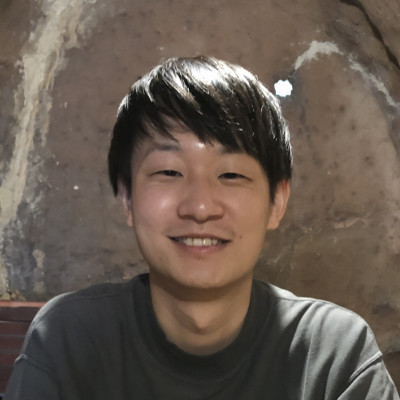Sessions / Practice-Oriented Short Workshop
Benefits of using Language Learning Histories (LLHs) in teacher training #2975
Successful language learners need to learn beyond the classroom (Richards, 2015). These contexts enable learners to develop and exert their learner autonomy, as they decide what and how to learn. This presentation focuses on experiences with two Malagasy student teachers co-authoring a paper in which they tell their English language learning histories (LLH) beyond the classroom. Beyond the classroom, every learner has their own ways of learning, which may depend on their learning contexts and their motivation and interests. Through writing LLH, the student teachers realized how their interests constantly triggered their motivation to create opportunities to learn outside the classroom, a context where support is scarce. They also became aware of the disconnection between in-class and out-of-class learning content. These experiences helped them reflect on their future practice and how they would like to implement classes. Through the process of writing experiential narratives in the paper, we were able to make some significant insights on the potential benefits of the use of LLH in language learning and teacher training. Accordingly, participants will leave the presentation with a deeper understanding of learner experience and autonomy that can help them in developing practices to facilitate language learning beyond the classroom.
Reverse Engineered: Modeling cross-cultural pragmatics with TOEFL iBT tasks #2853
The TOEFL iBT test is designed to measure the likelihood of academic success in English-medium universities attended by non-native English speakers. In order to do well on the test, an understanding of academic vocabulary is important, but so too is a grasp of non-academic vocabulary that is useful in student life. This “college knowledge” is tested in the listening and speaking sections of the TOEFL iBT. Test-takers are asked to demonstrate their understanding of conversations between students and professors, students and university staff such as a librarian, registrar, or academic advisor, and conversations among students. By utilizing TOEFL iBT practice materials and their accompanying scripts, these texts can be reverse engineered to model , instruct, and improve our students’ lexical and cross-cultural pragmatic awareness. This workshop will demonstrate how materials can be exploited to build up useful vocabulary for study abroad (dorm, GPA, transcript, etc.), improve situational awareness through reading, listening, and role-play, and ultimately build up students’ confidence so that they have a degree of “college knowledge” before they set foot on a campus far from home.
Building Zettelkastens for SLA research and the classroom #2912
In this presentation, classroom applications of the Zettelkasten method will be explored. A Zettelkasten is a personal knowledge management system in which notes are created and assigned to ad hoc categories as they emerge. By creating note slips, either in digital or analog form and subsequently creating links among them, a framework of knowledge can be replicated. By relating ideas to each other, students replicate a train of thought. Zettelkastens provide a place to store and, more importantly, organize knowledge, thereby increasing the quality and quantity of learning. Though this system was first used to develop research ideas, it also has applications in the foreign language classroom to serve as a framework in which the learners organize and consolidate what they have learned. In this talk, the presenter will first provide an overview of the literature on Zettelkastens and then demonstrate how to implement this system and apply it to research and, more importantly, the classroom. Finally, learners’ subjective feedback on the effectiveness of this classroom practice will be addressed.
Teaching Self-study: Ideas to improve Self-study Habits #2843
The presenter will share ideas for guiding students from ‘I don’t know what to do’ to ‘now I know what to do’. The ideas include: setting goals, mental preparation for daily self-study activities, Learning Cycle, and note-taking strategies. English as it is taught in classrooms often focuses on testing students rather than on having them acquire learning skills. Learning strategies should be taught explicitly to enable our students to acquire learning skills. Learning Cycle, Active Recall, and study habits are three theoretical paradigms the presenter encountered in recent years. Learning takes place when students have opportunities to repeat the content. One effective strategy is using the Learning Cycle. The famous Feynman Learning Technique is one of the variations of the Learning Cycle. Active Recall can be used in connection with the Learning Cycle. Simply said, Active Recall is an act of self-questioning. By using Learning Cycle with Active Recall, the content can be repeatedly reviewed by students. Next, the presenter will share his collection of note-taking styles including some unique note-taking styles. At the end of the presentation, the results of the presenter’s own action research in this area will be shared.
Corpus Linguistics: What is it and what can it do for you? #2968
Corpus Linguistics (CL) is a data driven methodology where frequency data is an important source for teachers and learners (Friginal, 2018). CL is mainly used at the level of institutions, publishers, editors, materials writers, researchers, and other specialists. (Bolton, 2010). This is a process and language that is very specialized and dense and is not intended for the language learner / average teacher. It takes a lot of investment in order to come to understand CL, like any technical subject. CL does have a lot of upsides such as making materials more authentic and developing learner autonomy. This presentation will cover some practical examples of what can be done in terms of pedagogical application such as tasks done by students or simply techniques to improve your own teaching. Having different tools and a variety of them can help teachers who have no experience get a good start using CL in the classroom.
Paper to pixels: A decade of EFL journal development #2829
Journal writing is a recognized and much-used tool in language teaching. In the language teaching classroom, it can address multiple needs: target language habituation, student interaction in the target language, provision of authentic materials, facilitation of both peer and instructor review, multimedia communication, multiple study skill integrations, enhancing student motivation, and many more. Journaling has been a component of the first-year courses I teach for over a decade and has been developed and refined through several iterations. This presentation has three distinct foci. First is the succinct elaboration of the language teaching needs the journaling program seeks to meet, followed by a description of the development of this program over time and the reasons why that development was necessary. Finally, there is a practical demonstration of the various modes, methods, and tools in the current OneNote-based journaling system, illustrating how it can be used, and be useful, for both students and educators.
Filling Gaps in the English Curriculum with Self-Access Learning Initiatives #2838
Classroom-based language curricula are necessarily “one size fits all”, leading to potential gaps which self-access language learning can address through resources suited to individual learning goals. Moreover, centres can become social communities in which users learn from each other (Mynard, 2019). Through dialogue with learners and faculty, gaps in the English curriculum were identified and initiatives developed within our tight budgetary constraints. The questions that guided the development of our self-access centre were: 1. Why do many CEFR (pre-)A1 level learners rarely visit the teacher-run conversation lounge and what can be done to encourage their participation? 2. How can value be added for bicultural and “returnee” learners who are not well-served by required English classes? 3. What can be done to support the 10-15% of students in the English Department who choose to write their graduation thesis in English, considering their numbers are judged insufficient for a dedicated advanced academic writing class? Details will be provided of ongoing initiatives to encourage participation of lower-level students, involve bicultural and returnee students as active stakeholders, and provide writing support without a writing centre. In addition, presenters will invite ideas from the audience to address these common issues through autonomous learning.
Transforming rudimentary tasks through the use of authentic materials #2868
One of the most vital, yet challenging tasks of a language instructor is to create activities that offer a variety of real-world applications to help prepare students for life beyond their studies. Standard curricula, textbooks, and high-stakes tests are often rigid, with little room for creativity and relevant learning experiences. An increasing number of studies show that scaffolding authentic materials provides countless linguistic benefits, such as improved communicative competence (Berardo, 2006; Mishan, 2005), listening comprehension (Otte, 2006), exposure to unstructured language (Rogers & Medley, 1988), and non-linguistic advantages, such as motivation (Nuttall,1996) and enhanced cultural understanding (Little et al., 1989). This session will begin with an overview of the academic discussion revolving around the use of authentic materials in a foreign language classroom. Following this, the presenter will explore guidelines to consider when selecting authentic materials, and some simple, yet effective strategies for integration. In closing, the presenter will share some practical tasks that they have implemented in their Japanese university classes and offer insight into how it has impacted their students. The session will revolve around this question: How can educators exploit authentic materials to close the gap between the real world and the classroom environment?
Developing a system for student self-evaluation in speaking classes #2717
A common classroom challenge is evaluating student oral production, particularly in classrooms where students speak in small groups as limitations of teacher and classroom lesson time make providing individualized feedback impractical. In this practically-oriented presentation, the presenters introduce a system developed to make lessons more student-centered, promote learner autonomy, and facilitate student reflection. The system enables students to self-evaluate their speaking through recording and transcribing their oral production using freely available online tools. The presenters describe the development process for the self-evaluation rubric. The rubric went through multiple iterations from one originally intended for teachers, which was unwieldy for students to use, to a simpler, more focused student-friendly rubric. As a result of this change to the class system, students could self-evaluate their production and solicit individualized feedback from instructors concerning self-selected topics of interest. The presenters also share student reflections and feedback. Specifically, students observed that focused self-assessment helped them better understand and implement the conversation strategies featured in the class textbook. As these techniques are compatible with online and face-to-face instruction, attendees will gain an understanding of how to implement similar strategies in their teaching without relying on the online technologies used.
Practical Lessons from Materials Development #2976
In order to support materials development in EFL teaching in Japan, there is a need for sharing of expertise and practical experience. This can potentially be achieved through workshops which bring experienced developers together with teachers who have the interest or need to create materials. This workshop will begin in the form of a structured dialogue between two materials developers, one with 25 years experience and the other much newer to the field. Developing materials for language learning is fundamentally a practical process, and through the presenters’ guidance and offering different perspectives, they will share lessons learned in the trenches of materials development. Some topics covered are the use of linguistic and practical frameworks, utilizing skills and knowledge that you already have, finding your own working style, identifying your learners' language needs, working with different activity types, using deadlines effectively, and balancing your own interests with the needs and interests of the learners. For each topic, workshop participants will use these lessons and tips in groups as a stimulus to think about and develop learning materials for their own teaching context.
Teaching English to hearing-impaired students: a practical approach #3023
This workshop focuses on identifying the issues and challenges of teaching English to Japanese university students with hearing impairments and aims to raise awareness among educators of the particular needs that may require accommodation, and what strategies can be employed to make the language more accessible. Although the number of our students with this disability may be small, it is important to consider in advance what can be done to provide a supportive classroom, including assessing the level of disability and students’ previous educational background. This may test the skills of teachers who have not received specialist training. The background to the teaching of students with special needs in Japan will be presented and approaches will be suggested that could be taken to provide an environment in which every member of the class can actively engage. The presenter will share experiences in both face-to-face and online classes, summarize published research on the topic, explain the system a private science college has established to assist all learners with special needs, and share a small number of basic BSL (British Sign Language) greetings. Contributions from other educators with experience in this area will be warmly welcomed.
Visual Storytelling in Creative Writing #2813
Maloney (2019) states that creative writing is perhaps "the most under-used tool in the ELT box." Research shows that the benefits of using creative writing in the EFL classroom include raised critical consciousness (Stillar 2013), increased motivation (Smith 2013), and improved acquisition of grammatical structures (Pelcova 2015). This practice-based presentation will outline how one particular aspect of creative writing, screenwriting, can be successfully utilized in the Japanese university classroom. ‘Visual storytelling’ is a form of writing used by screenwriters to communicate on the page images and information that will be seen on screen. The presenter will begin by explaining what visual storytelling is. He will then describe how he teaches a course for university 3rd- and 4th-year students that utilizes visual storytelling techniques to introduce students to creative writing. The presenter will explain how he makes use of short films, feature film clips, and screenplay extracts to foster student creativity. Samples of work done by students will be introduced.
Reimagining course outcomes using a distributed leadership approach #2882
This presentation will describe the multi-year process, starting in 2020, of revising the course outcomes of years 1 and 2 in the language institute of a university in Japan, originally developed during an earlier curriculum renewal based on a Multiliteracies framework (New London Group, 1996) to produce culturally and linguistically diverse students (Johnson et al. 2015). The revision process utilized a distributed leadership (Hallinger & Huber, 2012; Spillane, 2006) procedure to give various levels of stakeholders within the institution, from first-year lecturers to coordinators and principal lecturers, the opportunity to collaborate to develop and clarify more specific aims, and address gaps and redundancy to better streamline the outcomes across the courses in the first two years. The final two years of content-based elective courses were also considered, modeling the existing format required for those year levels, to provide better flow throughout a student's whole four-year experience. This cooperative effort to reimagine the course outcomes aims to make it easier for instructors to teach their classes, leading to better student learning outcomes. The presenters, instructors at the institute, will share the multi-step review process and explain how instructor input was incorporated throughout.
Intersectionality: From identity to social justice in the classroom #2701
Intersectionality, an intellectual framework first named in the 1980’s by African-American scholars including Kimberle Crenshaw and Patricia Hill Collins, is fundamental within feminist and anti-racist thought and activism. Identity is viewed as a matrix, a crossroads of various identities which are experienced differently by people of different groups, including races, social classes, and genders. Teachers and learners can benefit from awareness of this complex framework, keeping in mind that the ultimate goal is to move beyond personal identity and promote social justice, inclusion, and equality. Indeed, many of us are working from an intersectional standpoint already, understanding that we all have both privilege and challenge, and insisting that members of oppressed groups be given space to speak for themselves. Even Japanese university students, who may assume that everyone in the room comes from a similar background, will find that the people with whom they interact daily are surprisingly diverse. This presentation focuses on ways in which the speaker has introduced the concept of intersectionality to students with a wide range of language skill levels. Participants will be invited to discuss their experiences and reflect upon ways they might apply intersectionality in their own teaching and learning contexts.
Creative Writing for Young Learners #2738
Teaching writing to young learners typically involves answering questions or reproducing formulaic sentences. Although this encourages accuracy, it limits chances for creativity, and may not be motivating for students. This presentation explores two innovative activities to encourage young learners’ creative language use whilst giving importance to positive feedback in creative writing activities. Both activities give learners opportunities to experiment with language and extend their use of it while having fun. The first activity is to write their own fairy tale. The genre is introduced using videos before encouraging students to create their own stories. Watching different stories each week gives students inspiration as well as meaningful input. Writing their own stories is a good way to encourage learners to use a wide range of vocabulary and phrases to deepen the content of their stories. The second activity is a written retelling of a short video story. Students watch the video, then they retell the story together in the class, which they write in their notebooks. In this way, learners are exposed to meaningful output in speaking and writing. Both activities can be adapted to any age group and any level of English proficiency.
Student-designed and student-led online activities for English practice #2888
While there are many ways to reimagine language education, one way in which the presenter has attempted to do this is through Project-Based Learning (PBL) as this form of student-centered collaborative learning encourages active involvement in the learning process (Cocco, 2006 as cited in Kokotsaki, Menzies & Wiggins, 2016). This presentation will therefore describe a university course in which students engage in PBL through organizing their own online activities for English practice. While the presenter provides support when necessary, students are given complete control and are expected to take full responsibility as they work together to plan, prepare, and hold their English activities about three times a semester. Based on participant feedback about earlier activities, as well as the student organizers’ own reflections on their experiences, students in the course are encouraged to consider how to improve future activities. This presentation will first look at what is involved in offering such a PBL-oriented course, including the usual steps taken for organizing an activity. Next, examples of some of the activities held will be shown. Finally, based on students’ reflections and feedback, as well as the presenter’s own observations and reflections, potential challenges and benefits of such PBL will be discussed.
Fostering communication-based activities in SHS English classes #2820
This practice-oriented workshop will focus on the practical steps to implement activities involving more practical communication skills such as discussions, presentations, and debates, which are the skills newly required to be dealt with in SHS English education. The presenter concluded from the three-day teaching practice focusing on the presentation activity that it is essential to show demonstrations with visuals and encourage students’ awareness, rather than explaining and teaching directly. The presenter gave a mini-presentation at the beginning of each class to model the presentation. The topics varied according to the content of the day’s lesson, such as stimulating background knowledge for reading, reviewing grammar, and so forth. Dealing with content that the students already knew increased the interaction, and even those not used to speaking in English were willing to talk, which was a good warm-up for the presentation activity. By showing examples of good and bad presentations, the students realized what kind of presentation they should give and successfully applied these realizations to their practice. The outcomes of these activities were analyzed through students’ reflection papers, questionnaires, and video recordings. This presentation can interest attendees looking to adopt communication-based methods in small steps.
The genre and discovery learning approach to teaching and assessing writing #2890
The process approach (Taylor, 1981; Zamel, 1982; Raimes, 1983) is the most commonly used approach to teaching writing. Since the approach covers from brainstorming to composing, it allows teachers to participate and give feedback in the writing process as a reader, before switching back to their role as a grader. However, it is debatable how much it benefits students, as it lacks focus on a particular skill (content, organization and coherence, language, or writing style). This is notably valid with upper-intermediate or higher proficiency English learners, who tend to be weaker in just one or two aspects, but not all. This workshop will focus on applying the genre approach (Hyland, 2002) with application of the discovery learning method and collaborative writing, to the existing process approach. By minimizing lecturing (where students discover the conventions and linguistic features with the teacher’s guidance) and maximizing peer learning (with more scaffolding than the process approach), students write as a group, receive instant feedback in a class, and eventually work individually. It is an approach addressing all skills step-by-step when teaching half/ one term with blended learning. Lesson plans and sample teaching materials will be provided as examples.
Connected learning, firsthand – five useful ideas (regardless of your book) #3163
You want learning connected – to the students, language and real usage as well as your book. The author will share five useful ideas from English Firsthand – including ways to use them with (nearly) any textbook: Have the book talk directly to your students, fluency work from the beginning, multisensory pronunciation work and more. And he’ll add a few extras to help you (re)imagine your teaching.
Using IXL to Supplement English Language Learning #2721
IXL.com is a worldwide online website for learning academic subjects such as English, math, science, etc. Licenses can be purchased for individual students or school groups and there are different international editions to fit the educational curriculum of each country. According to the website, it is currently used by 1 out of 9 students in the United States to supplement school learning or for the purpose of homeschooling. In this workshop, the presenter will first explain how IXL was incorporated into his mandatory English grammar classes for both 1st-year and 2nd-year students at his university, including a thorough demonstration of the website. The presenter has noticed that compared with his ordinary (i.e., non-computer based) English classes, a lot more new vocabulary and grammar patterns have been able to be introduced through the practicing of the different types of skills found on the website. In addition, allowing students to take more control over their learning, including the skill level and pace at which they proceed, has led to a notable increase in student engagement both in class and out. Although IXL can be used for any skill level of English student, its beginner-level phonics skills can be especially of use in helping Japanese students with their pronunciation. This is true for not only university students, but younger children as well. A discussion among participants regarding good online resources that they have utilized in past classes will be conducted if time allows.
Letter Writing to Encourage Deeper Engagement with Reading Materials #2977
Teachers may find it challenging to get students to think about the texts that they read at a deeper level. In this presentation, an interpretive technique originally developed in the fields of narrative therapy and socio-narratology will be introduced. This technique asks readers to write letters of appreciation to writers, protagonists, or even to the texts themselves. In order to do this, readers must think carefully about what texts mean and how texts relate to their own values, experiences, and beliefs about themselves and the world around them. In their letters, readers are asked to be specific about what they appreciate, which requires them to reference the original text in their letters. The presenter will show how to adapt this technique for the EFL classroom. This will include ideas on how to introduce students to the genre of letters of appreciation and how to use the letters for discussion activities afterwards. Additionally, examples of student work will be shown.
Incorporating Online Practice Sessions in Pre-Service Training #2728
This Practice-Oriented Short Workshop will highlight the effect of incorporating online one-on-one tutoring sessions with JHS/SHS students for pre-service teachers to develop their teaching English in English. The Japanese Ministry of Education (MEXT) proposed teaching English in English both in JHSs and SHSs to advance students’ English communicative competence. However, preparing for this new policy is a challenge for pre-service teachers because, due to the COVID-19, practice opportunities to teach English have been limited. This workshop will explore how pre-service teachers conducted online one-on-one tutoring sessions about grammar and helped JHS and SHS students learn English through English. To improve JHS/SHS students’ English, prospective teachers used the first session to understand their tutee’s weakness in grammar. The pre-service teachers customized their lessons by creating original worksheets and materials to help their tutee overcome their shortcomings for the second session. Both pre-service teachers and secondary school students enjoyed the benefit of online sessions and showed the progress of their instruction and proficiency, respectively. The presenters will share the procedures and the effect of this collaborative project between the institution and the local school. Participants will leave with ideas for effective grammar instruction in English in regular lessons.
Make Extensive Reading Easier With Oxford Reading Club #3271
FInd out about the Oxford Reading Club, a digital library of over 1,000 graded readers that will allow your students to read anywhere, anytime, and help teachers to track the reading progress of their students easily.
Happily ever after: Post-reading projects for picture books #2859
Picture books are powerful tools for language learners. They tell stories through both words and pictures, and are a source of authenticity, motivation, and foundational literacy skills. However, once the story is told and the book is closed, there are still opportunities for meaningful learning to take place. This presentation will explore a variety of post-reading activities for young learners from preschool and up through elementary school ages, including retellings of famous stories, books made by students about themselves, and illustrated predictions of story resolutions. The talk will focus on creative art projects that allow children to engage with and personalize the themes, messages, and questions of a variety of picture book styles, such as wordless books, open-ended stories, and concept books. Key principles for choosing books, designing activities, and selecting materials will be discussed, along with suggestions for matching projects to age and ability levels. Finally, the potential for linking story and language content to teaching about subjects such as science, mathematics, and world cultures will be examined.
/l/ vs. /ɹ/: Minimal pair challenges, vocabulary, and communication #2889
Many Japanese English Language Learners (ELLs) have a hate-hate relationship with comprehending and pronouncing /l/ and /ɹ/ words, yet these two phonemes are an inescapable and integral part of the language. The fact that many /l/ words have an /ɹ/ minimal pair in the same part of speech (e.g., the nouns lack and rack) and the multiple vowel sounds of English necessitate learners’ recognizing and pronouncing those words accurately for successful understanding and communication. In helping Japanese ELLs face these /l/ vs. /ɹ/ challenges head-on, teachers can go beyond discrete minimal word pairs to minimal pair sentence contexts, introduce new vocabulary with accompanying images to enhance comprehension, and then help learners transition into communicative practice. The presentation will include a novel method of consciousness-raising about the correct tongue positions, and attendees will engage in fun, interactive, integrated-skills /l/ vs. /ɹ/ activities. These activities can be modulated as individual mini-lessons or extended into longer segments of academic, community, or workplace listening/speaking classes for learners at a range of proficiency levels. Attendees will be provided a set of PowerPoints, including embedded word and sentence pair audio, and the lessons are adaptable for one-on-one or group online or in-person classes.
Teaching world religions in EFL: Basic knowledge for global citizens #2699
Part of becoming a global citizen means learning about the diversity of religions in our global village. The English classroom can be an exciting place to explore this topic while promoting international understanding, cultural awareness and interest in the wider world. This talk will describe a content-based EFL unit designed for Japanese college learners on the topic of “world religions.” The unit aims to help students: A) gain a basic knowledge of the world’s major religions, B) acquire basic religious vocabulary needed to follow current events, C) overcome religious stereotypes (for example, that “Muslim = terrorist”), D) develop the respect, empathy and tolerance needed in our multicultural world. The unit consists of task-based activities that actively engage students in exploring the beliefs, traditions and symbols of five world religions (Christianity, Islam, Judaism, Buddhism, Hinduism). The activities are designed to promote vocabulary acquisition, language practice, communication skills and critical thinking. They range from group brainstorming, readings and quizzes to guest speakers, research homework and field trips. The talk will conclude with advice for language educators on how to address this topic in class plus a list of resource books, videos and websites on world religions.
Using Text Chat to Increase Participation and Engagement #2697
The COVID-19 Pandemic has caused an upheaval in tertiary education, with many classes either going online or becoming hybrid. Students participating in classes through Zoom often report "Zoom fatigue" and a loss of interest and motivation. Some students reportedly "ghost" classes, appearing in name only. In in-person classes, one effective technique to maintain student interest and attention is to periodically ask multiple-choice questions, and have all students respond simultaneously with response cards or through an online answer system. While there are many ways to replicate this during Zoom classes, there are several advantages to eliciting student answers via DM (direct message) in the chat. It is an easy way to elicit a variety of answer types (multiple choice, words, or phrases). DM is low risk; students' answers are invisible to the other students, so no student sticks out. DMs are motivating because the students know that the teacher sees their name alongside their answers. Zoom chat can be saved, thus preserving records of each student's participation. Finally, while these questions are best planned beforehand, DMs can be used spontaneously. This practice-oriented workshop will include a demonstration of how to analyze the chat transcript for quantitative and qualitative participation data.
Reimagining Culture, Communication and Competence #2982
The role of culture in communication is critical and well documented yet remains a challenging aspect to teach. Understanding and explaining how to communicate effectively and appropriately across differences is an essential component of language teaching. Since Hymes' (1964) introduction, notions of social competence have endeavored to explain the implications of personal, psychological and cultural elements affecting communication. Learners today, require meta-skills similar to Byram’s (1997) ‘Savoirs’ that embody a cultural awareness including sensitivity to differences, tolerance of ambiguity, willingness to adapt and cooperate, to negotiate meaning and develop understanding. This type of Meta-Cultural Competence (Reimann 2010) proposes that knowledge becomes competence when connected with experiences and the sensitivity to realize their significance. This presentation describes 10 categories of cultural orientations and communication styles used to objectively teach unfamiliar concepts. Considering the subjective nature of culture, creating a framework of relatable and comparable features, characteristics and criteria is necessary for synthesizing and understanding culture, building empathy and competence, while avoiding othering or perpetuating stereotypes. The categories to be discussed build on concepts established by Hall (1976) and Hofstede (1980), applying their models to the analysis of real critical incidents, which can be used to raise awareness and develop Meta-Cultural Competence.
Orchestrate or Pontificate #3292
Many of us teachers get easily sucked into a "Chalk & Talk" style of teaching in our oral communication classes. It is essential to give your students the opportunity and space to develop their oral communication skills. By doing this your students will actually want to come to class. This workshop will present a bundle of ideas to help you hand over to your students so that you may stand back and observe their progress.
Why Do You Talk Like That? #2818
A common feedback teachers receive from students is how they struggle to use English in the real world, even after a long period of learning. In short, the English we teachers teach them in class is often not the English we ourselves use - we often don't use full sentences, our daily grammar is basic and we tend to keep our words short and to the point. Once a student gets into the habit of thinking and talking like a textbook or a listening exam CD, the fossilisation is hard to break. This presentation will highlight several areas of ordinary classroom-style English and how they are problematic or even damaging when compared to their real-life English equivalent. The presenter will then propose some simple cognitive processes teachers could use to stop themselves sounding so unnatural and ways to adapt textbook materials, before discussing the paradox of "more means better". Attendees will have a chance to look at lesson plans and textbook extracts so they can think about and discuss how they might be adapted. The speaker hopes to share something of use to all teachers, especially those who teacher young or lower-level learners.
Challenges in arranging International Virtual Exchange (IVE) partnerships #2832
The pandemic has forced many of us to move outside of our teaching comfort zones to master the use of online conferencing software, learner management systems, and other online tools. Through the experience of having to adapt to entirely online, hybrid, and hyflex teaching situations, participating in International Virtual Exchanges (IVEs) is less daunting than ever before. However, even though the technical hurtles are far lower, it remans a considerable challenge to find suitable partners, negotiate conditions for the exchange, and work out mutual or complementary goals. The presenter, who has engaged in such exchanges at the tertiary level for more than a decade, will share ideas for how to get the most out of them, whether the main focus is linguistic, cultural, or a combination of the two. Areas to be covered in the workshop include practical considerations such as the choice of partner classes or institutions, the selection of platform (e.g., Moodle vs. social networking apps), the role the exchange will play in student evaluation, and how it can fit pre-existing curricular goals for the respective sides of the exchange.
Conference proposal writing and reviewing: Constructive feedback #3099
Presenting ideas to fellow teachers and researchers is an essential part of professional development. Concisely describing a presentation in one or two hundred words of text is a challenge. Conference organisers must also put together teams of reviewers to assess the quality of each submission, and ideally write feedback that will be useful for authors to revise their submissions, whether to raise the standards of the current conference or to help authors when they apply to a later conference. This session is intended for anyone thinking about writing a presentation abstract, joining a reviewing team for a conference, or continuing to review and give feedback on submissions. This presentation will first consider the essential form and component of a presentation submission: who it relates to, what it is about, when and where it takes place, and why it is important. Then we will look at how reviewers can write feedback in a tone that is helpful without being patronising, and critical without being offensive. What are the rules concerning abstract writing and when do rules become guidelines? Do abstracts need references (Gough & Taylor, 2018)? Should abstracts include questions? (194 words including these ones!)
Case studies: An imaginative learning approach with lifelong applications #2877
Formal education systems have faced the expectation of developing the whole learner and more recent calls are for developing lifelong learners. In the 100 years since Harvard Business School pioneered the case study approach, cases have become recognized as pedagogical techniques for experiential learning to cultivate the capacity for critical analysis, judgment, problem solving, and action. Experiential learning (Silberman, 2007) affords students in higher education with opportunities to meet course aims by applying knowledge and demonstrating skills. In addition to engaged language in use through preparation for class discussions consolidating both life and academic experience, case work supports students in building long-lasting abilities that transfer to situations beyond the classroom. This teaching practice session introduces the merits of case studies with examples used in discussion and business English courses sampled from various ELT materials and supplementary resources. The presentation also highlights seven meta-skills prompted through case study learning to better prepare students for work and foster an interest in ongoing learning after university. Participants will consider how they might incorporate cases studies in their context. Following a brief overview of constructivist pedagogy, this session will interest teachers looking for practical means to meet active learning demands and support learner engagement.
Strategies for Promoting Critical Thinking in University Classes #2878
This workshop will outline practical approaches instructors can make use of in the classroom to promote the development of critical thinking skills in second language classes. The development of critical thinking skills remains central to the acquisition of effective, academic language skills (Benesch, 1999; Halvorsen, 2005). However, many instructors hesitate to target the development of such skills in language classes, fearing accusations of bias or being concerned about how to integrate the teaching of critical thinking and second language skills. After arguing briefly for the importance of teaching such skills in university classes, attendees will be introduced to several practical tasks and activities that can be used to promote the development of critical thinking skills. The ways in which critical thinking connects directly to academic writing, presentation, and discussion skills will be highlighted, and attendees will be given the opportunity to consider how tasks can be adapted for use in their specific teaching contexts. Advice will be given regarding how to remain fair and impartial when addressing controversial subjects, and strategies to help support students in independently developing ideas that are deep, logical, and coherent.
Reconceptualising Prejudice #2909
Prejudice. Ethnocentrism. Bias. We often present them to our students as glitches in the system, “evil intrusions” into an otherwise well-functioning cognitive process, bugs which well-meaning people should eradicate from their thinking. In fact, far from being glitches, these short-cuts in thinking are the system: human cognition would be impossible without them (Nortje, 2022). There are four limitations on human perception that make biases not only inevitable but integral features of our interaction with the world (Benson, 2016; Manoogian, 2021): lack of bandwidth in the brain to deal with the amount of sensory information available; tight restrictions on memory storage; a biological imperative to make sense of the world despite having partial experience of it; and a need to take action in real time. The presenter will suggest approaches to bias that can help students to see that: 1) they are not evil just because they harbour stereotypical thoughts; 2) such overgeneralisations are a necessary part of how we deal with the world; and 3) being aware that human thoughts and actions are always based on simplistic images of complex realities is the first step to overcoming the shortcomings of our cognitive systems. The suggestions will include activities for de-centring (stepping outside ourselves to consider multiple perspectives on an event or situation) and seeing ourselves as others do.
TOEIC listening/speaking prep: collaboration and real-world application #2967
Instructional practices for standardized tests like the TOEIC often rely on a teacher-centered “teach-model-practice-explain” pattern that is at odds with the Communicative Approach. Test prep materials similarly emphasize lower-order basic comprehension and recall. In this practice-oriented presentation, attendees will acquire four TOEIC listening/speaking section prep activities that focus on integrating into the “practice” stage the opportunity for students to collaborate, solve problems, and apply their learning to real-world contexts. First, the presenters will briefly cover the presentation’s motivation, context, and teaching gap (2 minutes). The presenters will then share step-by-step how-to's for the activities, which include a business consulting project for TOEIC speaking and reasoning gap for TOEIC listening (10 minutes). Participants will demo one activity (8 minutes) and finally collaborate in small groups applying the activities to their own teaching contexts (5 minutes). Attendees will walk away with effective, meaningful, motivating TOEIC prep activities that they can immediately begin using in their classes.
(Re)imagining language learning: A new approach to academic vocabulary #2726
The 95% vocabulary comprehension level for academic texts and lectures is the crucial threshold for university study. To help learners attain this level, the presenters combined the headwords from the 4 major academic vocabulary lists to date: AWL (570 words), NAWL (963 words), UWL (836 words), and EAP (874 words). The resulting Global Academic Lexicon (GAV) presents the headwords from all four lists in 23 lessons. These lesson, comprising 1,850 words, progress from most frequently appearing to the least frequent. The pedagogical premise is efficacy: to lower the “learning burden” and learn the most commonly appearing words first (Nation, 2006). These lessons are now open-source and available to university teachers and students in Japan and around the world. Using free online Quizlet cards, they (1) provide the primary meaning of headwords in simple English and in Japanese, (2) demonstrate their “use in context” in sample sentences, and (3) offer a rich variety of flashcards, writing-listening-spelling practice, and competitive games for individual or group use. Presenters will demonstrate how lessons can be accessed and used autonomously, in online instruction, or in the physical classroom to motivate students, assess their learning, and give feedback on their progress.
Incorporating Global Issues in EFL Classrooms #2913
The pandemic has magnified issues of social justice and inequalities both locally and globally. The language teacher who brings these issues into the classroom can inspire students to be change agents. Students benefit from these guided classroom experiences by becoming aware of marginalization both within and outside the classroom on issues such as sexism, racism, and the environment. Empowered students are able to then make informed decisions and problem-solve through critical awareness. Activities and materials created based on feminist and engaged pedagogies for an academic reading and writing class (CEFR B1-B2) will be presented. The strengths and weaknesses of these activities, their implementation, and responses from the students will be discussed to answer two questions: (1) How can teachers incorporate global issues in EFL classes? (2) How can teachers provide students with hands-on opportunities to make a positive impact in their community by reflecting on local issues?
Reflection as a learning target for global education #2911
This presentation will describe two types of reflective activities, written and conversational, designed to help Japanese university students of English clarify and develop their relationship to global issues, which is a valuable piece of the puzzle of global education. The outcomes of these reflective activities over 4 years show that they are largely successful in building self-awareness, despite revealing feelings of eco-anxiety, disconnection and frustration among students, which the presentation will discuss. Good reflective practice among students allows for not only greater wellbeing and depth of knowledge (Helyer, 2015; Chang, 2019), but progress towards global education’s goals of awareness, attitude, and action (Cates, 2002; Hicks 2010). Encouraging reflection, as an explicit student learning objective connected to various learning tasks, gives students the space and time to examine their values, beliefs, and changing relationships to their community, climate, and conflicts at home and abroad. A discussion of the merits and limitations of these, and other reflective practice activities in a global issues classroom is welcome.
Effective use of questioning strategies in active classroom interaction #2730
This presentation will highlight the effective use of teacher’s follow-up questioning strategies to construct active teacher-student interaction in English lessons in Japanese junior high schools. The new Course of Study at junior high school has newly introduced “Teaching English in English” policy to give students much input and chances to speak English. However, if students are not used to communicating in English, they often find it difficult and keep silent, and the communication often breaks down. To cope with these situations, teachers’ questioning strategies have great potential to encourage students to answer (Wu, 1998). This presentation will explore how teachers can actively involve Japanese junior high school students in interaction and provide them with learning opportunities through the following questioning strategies: simplifying the questions, giving examples, repeating the questions, and asking further questions. The presenter designed the lessons and interaction based on these strategies. The lessons and interactions were recorded by videotape and analyzed by Conversation Analysis. Among these strategies, especially simplifying the questions and giving examples helped the students understand what the questions meant and respond to them. The presenter will share the techniques and students’ reactions and responses in the classroom based on the actual interaction data.
